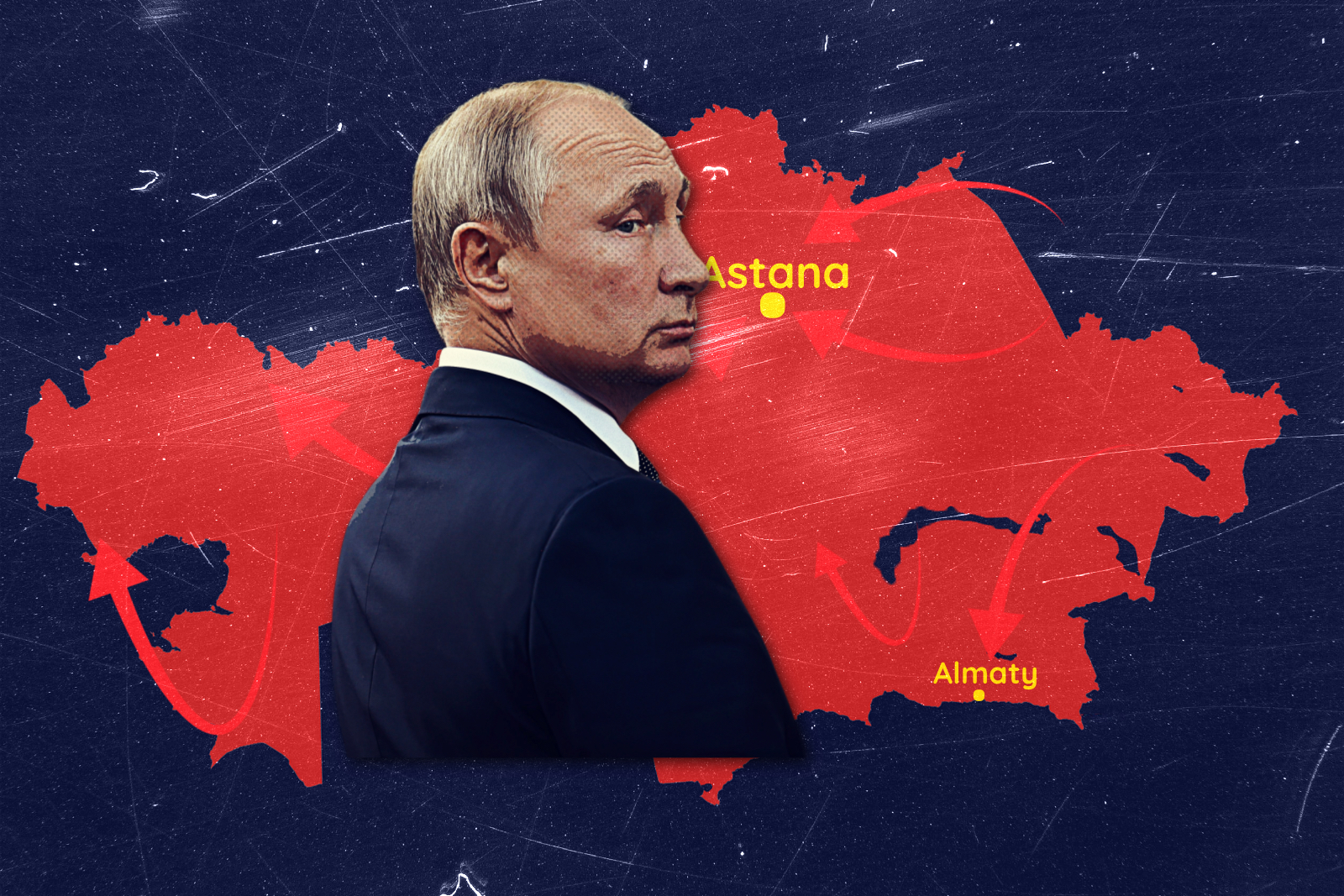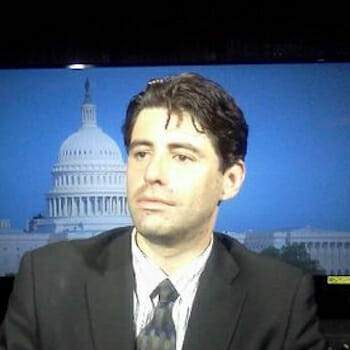
Kazakhstan isn’t ‘Russophobic’ it Just Doesn’t Support Putin’s Stupid War
As the war in Ukraine continues its winter phase, the conflict’s first anniversary is now on the horizon. Sadly, it does not appear that peace is likely anytime soon. Even more, there are concerns that the Kremlin could foresee another similar operation against another neighboring country based on exaggerations and outright lies. Kazakhstan is a clear example of this potentially catastrophic future.
Since the war began, Kazakhstan has repeatedly stressed that its foreign policy is made in Astana, not in Moscow, Brussels or Washington. Astana has not deployed troops to Ukraine, and the government has deterred citizens from traveling to Urkaine to fight for Kyiv.
Moreover, Astana has repeatedly called for peace talks to end the war. During a speech at the UN General Assembly, Kassym-Jomart Tokayev, Kazakhstan’s president, called for integration and cooperation. “We cannot afford indecision or narrow interests detrimental to this common heritage and our collective good…Therefore, Kazakhstan stands ready to cooperate with all relevant actors in a spirit of inclusiveness, multilateralism, and goodwill.” It is worth noting that he added “the global system of checks and balances has failed to maintain peace and stability” but stopped short of mentioning the war, Ukraine, or Russia by name.
The problem is that, from Moscow’s point of view, Kazakhstan has not been supportive of its war effort which involves countless war crimes. Moreover, accusations against the Kazakhstani government sound similar to Moscow’s allegations against Ukraine before the war started. A commentator on Russian television in November announced on air, “the next problem is Kazakhstan because the same Nazi processes can start there as in Ukraine.” The Kremlin flack added, “and there’s a lot of Russians there,” implying that ethnic Russians living in Kazakhstan are in some sort of jeopardy.
Russian officials have also made similar troubling statements in recent months. In early December, Alexey Borodavkin, Russia’s ambassador to Kazakhstan, told a Russian-language media agency, “Unfortunately, I can state and express concern about [Kazakh] nationalist tendencies. Radical, I emphasise, nationalist tendencies in Kazakhstan are being seen more and more clearly.” Borodavkin added, “With a strong popular mandate that the president has got, tough measures for tackling all kinds of extremist, nationalistic appearances will be carried out. If there is a need [a request], we will help.” The statement suggested that Russia could send troops into Kazakhstan if Tokayev requested assistance. To be fair, this already occurred in 2022.
Sergei Lavrov, Russia’s foreign policy chief, eventually explained that Borodavkin’s comments do not reflect Russia’s position, not even the diplomat’s position. However, it is unclear why the ambassador made those comments to begin with being that Russia is very calculating with any pronouncements.
Another troubling example occurred in August when Dmitry Medvedev, Russia’s former prime minister, posted on his VKontakte account that “Kazakhstan is an artificial state.” The post was deleted, and hackers were accused of having hacked Medvedev’s account. Unsurprisingly, these statements have found an echo chamber online via YouTube, blogs, and mass messaging services like Telegram.
One bizarre case in the Kazakhstani media attracted concern and criticism. Last March, Lyubov Panova, a radio host for Europa Plus Казахстан, was in a debate and said, “we will call in Uncle Vova if you talk too much” (Vova being an affectionate term for Vladimir Putin). As a result, Panova was fired, and the radio station distanced itself from Panova’s comments. While the incident did not escalate, such events can be utilized as arguments to justify future actions.
At this point, it is necessary to clarify some basic facts. Kazakhstan has a population of 19 million. As Radio Free Europe/Radio Liberty explains, “ethnic Russians make up about 15 percent of [the] population, compared to 37 percent before the collapse of the Soviet Union.” Most ethnic Russians live in the northern areas of the country that border, unsurprisingly, Russia.
While many ethnic Russians have chosen to move back to Russia since the dissolution of the Soviet Union, there is no evidence that they were pushed out by Astana or that any sort of discrimination against Russians occurs. Since the war commenced, some media outlets have reported that ethnic Russians do not need “saving” from Russia.
Even more, when Moscow ordered the so-called “partial mobilization” in September, some 200 thousand (if not more) Russians traveled across the border into Kazakhstan to evade the draft. It is unclear how many Russians remain in Kazakhstan, returned home (as the partial mobilization order was canceled), or chose to travel to another country from Kazakhstan. On the other hand, it is clear that if Russians were experiencing oppression or abuse in Kazakhstan, they would not have moved there when the controversial order was issued. Second, there have been no reports that Russians that crossed into Kazakhstan last year were harassed in any way. When the influx of Russians commenced, Tokayev stressed, “We must take care of them and ensure their safety. This is a political and humanitarian matter.”
As a final example, not only have average Russians moved to Kazakhstan, but even very wealthy ones have done the same. One example is the billionaire Timur Turlov, a native Russian, who moved his operations to Almaty around 2011. If “Russophobia” has existed in Kazakhstan for a long time, it is highly doubtful that even a Russian billionaire would move there.
The war in Ukraine has caused concerns about the Kremlin’s aggressive foreign and military policy. In addition, insults and provocative statements by Russian politicians, diplomats, and media celebrities against Russia’s neighbors have provoked understandable concerns that, should Moscow be triumphant in Ukraine, another country could be next.
Since the war began, the government of Kazakhstan has made it clear that Russia or another state does not dictate its foreign policy. While Astana has not directly criticized the invasion, Kazakhstan has also not openly supported Russia and has remained understandably neutral and supportive of peace. Unfortunately, this position is not sufficiently supportive of Moscow, as exemplified by the recent threats and insults against Kazakhstan.
Russia and Kazakhstan share the second largest border in the world, and have strong relations in areas like defense, trade, and people-to-people. This last fact is quite relevant, as it is essential to clarify that there is no “Russophobia” in Kazakhstan, as the government and population have welcomed ethnic Russians living in the country when the Soviet Union dissolved and the Russian citizens that entered Kazakhstan escaping the 2022 partial draft. At a time of international sanctions and isolation, Moscow should not be alienating its allies and friends.

